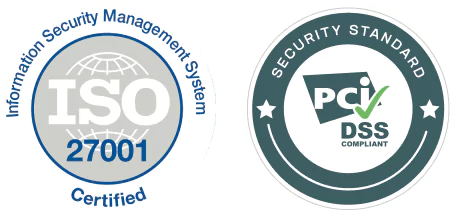CONFLICTS OF INTEREST POLICY
Kingdom Bank Corporation, Registered in First Floor 43 Great George Street, Roseau, Commonwealth of Dominica.
Table of Contents
Introduction
Senior Management Policy Statement
What are Conflicts of Interest?
Approach to Conflicts Management
Staff Responsibilities
All Staff
Senior Management
Board Members
Conflicts of Interest Reporting Process
Notifying Senior Management
Review of Conflicts
Independence
Declining to Act for a Customer
Disclosure of Outside Business Interests
Specific examples of Conflicts of Interest (non-exhaustive)
Third Party Relationships
Allocations
Cross-Selling Products
Disclosure or use of non-public information
Family / Close Personal Relationship
Gifts and entertainment received
Document Review and Version Control
Annex1:
- Description of organisational arrangements relating to Conflicts of Interest
- Internal Governance Arrangements
- Conflicts of Interest Standards Framework
Annex 2:
- Description of policies, procedures, systems and controls relating to Conflicts of Interest
- General Policies, Procedures, Systems and Controls
- Policies, Procedures, Systems and Controls relating to specific activities
Introduction
The Kingdom Bank Corporation (hereinafter referred to as “The Kingdom Bank” or “the bank”) is authorised by the Financial Services Unit as an Offshore bank in the Commonwealth of Dominica. It provides banking services under this license.
Digital Currency Purchase
Acceptance of deposits and other repayable funds
Money Transmission services
Investments in financial securities, keeping and administration of securities, Stocks, Shares, Bonds, Loans Syndication, Dealing in Gold, providing consultancy and investment management services and corporate advisory
Issuing and administering of payment including Credit cards, travellers’ cheques, electronic money
Guarantees and commitments
Electronic Banking
Hypothecation, Lending, Financial Leasing, Credit reference services
Exchange
Custody Services, Payment and Collection Services, Banking Services
Under guidance from our regulator and in accordance with the FSU’s Principles for Offshore Banks, The Kingdom Bank is required to manage conflicts of interest fairly, both between itself and its customers and between customers.
This policy sets out The Kingdom Bank’s arrangements in connection with the identification, documentation, escalation and management of Conflicts of Interest, including where such Conflicts of Interest arise in the context of its business.
With the above in mind, all staff are responsible for ensuring the bank meets our compliance obligations. Compliance is the job of all staff and all staff MUST follow policy, procedure and the training provided to operationalise those policies.
Throughout this policy document, references to “staff” will include all employees of The Kingdom Bank, its agents and subsidiaries. Failure to follow this document by any member of staff may result in disciplinary action taken against the individual.
Senior Management Policy Statement
It is important that The Kingdom Bank, and any member of staff acting on behalf of the company, avoids any situation where there is or may appear to be a conflict of interest between The Kingdom Bank and its customers or between customers themselves.
The Senior Management of The Kingdom Bank are committed to ensure that the bank is treating its customers fairly and it will never knowingly put itself in a position whereby its own interests, or its duty to another party, prevent it from discharging its duty to a customer.
If The Kingdom Bank has a relationship that gives rise to a conflict with the interests of any of its customers, it will not knowingly act for that customer without taking reasonable steps to ensure the fair treatment of that customer. It is important to avoid not only actual conflicts of interest, but also any semblance of a conflict of interest arising.
The policy is designed to be fully self-explanatory, however where circumstances are not covered by this guidance, please seek advice from your line manager who will then escalate the issue to Senior Management so that they can provide guidance on how to proceed.
What are Conflicts of Interest?
A Conflict of Interest is a situation where one or more persons or entities have competing interests, and the serving of one interest may involve a detriment to another. This could occur where
an employee makes a gain at the expense of the client
an employee has an incentive to favour the interest of one client over another
an employee receives an inducement (i.e. a money or a gift) in relation to client,
which is outside the standard fee set by The Kingdom Bank.
This policy applies to the extent that a Conflict of Interest gives rise to the risk of one or more of the following:
The Kingdom Bank and/or a Staff Member failing to comply with legal or regulatory obligations;
The Kingdom Bank and/or a Staff Member failing to fulfil a duty of care, trust or loyalty owed to another person or entity such as a client;
a Staff Member’s professional judgement and objectivity being compromised and/or hindering the proper discharge of their duties and responsibilities;
a Staff Member engaging in unethical conduct; and/or
The Kingdom Bank obtaining improper advantage or treatment or giving rise to the appearance of impropriety and reputational damage, including as it relates to the manner in which business is awarded to or by The Kingdom Bank.
A Conflict of Interest under this policy includes both an actual Conflict of Interest (i.e. a Conflict of Interest that has arisen) and a potential Conflict of Interest (i.e. a Conflict of Interest that may arise given particular facts and circumstances). It also includes a perceived Conflict of Interest (i.e. a situation which may give rise to the perception of a Conflict of Interest), even where a Conflict of Interest may not in fact exist.
Failure to identify and appropriately manage Conflicts of Interest could result in inappropriate or a range of adverse consequences for Clients, The Kingdom Bank and Staff, such as reputational damage, damage to client relationships and loss of client business, regulatory sanctions, and risk of litigation.
Approach to Conflicts Management
The Kingdom Bank seeks to ensure that a Conflict of Interest does not adversely affect the interests of Clients, The Kingdom Bank, its shareholders and investors or other stakeholders through the identification, prevention, or management of the Conflict of Interest. Some Conflicts of Interest are not permitted as a matter of law or regulation and others are permitted so long as The Kingdom Bank has appropriate means by which to manage them.
The Kingdom Bank may utilise several means (which may be used individually or in combination) to manage a Conflict of Interest including:
organisational arrangements which are described in Annex 1;
policies, procedures, systems and controls which are described in Annex 2;
disclosure designed to inform the affected parties of the Conflict of Interest and
its likely impact on them which is described in Annex 2; or
avoidance of the service, activity or matter giving rise to the Conflict of Interest
where the Conflict of Interest cannot be prevented or managed effectively using other means.
Additional Controls to manage Conflicts of Interest may include:
Monitoring Inappropriate Influences; The Compliance team will monitor and prevent any person exercising inappropriate influence over the way in which a relevant person carries out services or activities for The Kingdom Bank.
Monitoring Conflicts; The Conflicts Register is maintained by Compliance and reviewed as a standalone topic by the Management Committee and the board when MI is presented to them in Compliance Monitoring monthly reports.
Segregation of Functions; The Kingdom Bank operates a ‘Segregation of Function’ policy with full oversight supplied by the detailed Compliance Monitoring Program. As such, staff are prevented from the simultaneous or sequential involvement in separate activities where such an involvement may impair the proper management of conflicts of interest.
Staff Responsibilities
As part of The Kingdom Bank’s approach to Conflict management, Staff must fulfil the responsibilities outlined below when performing their roles at The Kingdom Bank.
All Staff:
All Staff are responsible for identifying and managing Conflicts of Interest on an ongoing basis and are required to:
comply with this policy, rules and other applicable policies and procedures relating to the identification, documentation, escalation and management of Conflicts of Interest;
act with integrity and exercise good judgement and discretion;
act with the requisite degree of independence and objectivity when discharging
their responsibilities at The Kingdom Bank;
avoid, wherever possible, situations giving rise to Conflicts of Interest due to any
of the following:
✔ personal financial interest;
✔ Family Members or Close Personal Relationships;
✔previous, current or potential future involvement in an activity or
endeavour (whether at The Kingdom Bank or externally); or ✔ different roles and responsibilities at The Kingdom Bank;
immediately notify their Manager and/or Compliance of the existence and general nature of a Conflict of Interest;
not be in a supervisory, subordinate or control relationship (having influence over conditions of employment) with closely related persons including Family Members or Close Personal Relationships;
not misuse information obtained in the course of working at The Kingdom Bank including in connection with dealing in shares;
manage work-related information on the basis of a ‘need to know’ approach, respecting information barriers and duties of confidentiality at all times;
challenge and escalate promptly issues of concern to their Managers and Compliance so that Conflicts of Interest may be appropriately reviewed, managed and resolved; and
upon joining The Kingdom Bank and on a periodic basis thereafter, complete all attestations required by Compliance.
Senior Management:
Members of Senior Management are responsible for overseeing the identification, documentation, escalation, and management of all Conflicts of Interest as they arise within their relevant areas of responsibility at The Kingdom Bank.
Members of Senior Management are required to:
sponsor and encourage an appropriate culture which emphasises the importance of ethical treatment of Clients and the fair handling of Conflicts of Interest;
be engaged in the implementation of policies, procedures and arrangements for the identification, documentation, escalation, management and ongoing monitoring of Conflicts of Interest;
be engaged in the clear communication of policies, procedures and expectations and the sharing of best practice throughout The Kingdom Bank;
adopt a holistic view to identifying potential and emerging Conflicts of Interest within and across functions and to facilitate informed judgements with respect to materiality and the manner in which conflicts are handled;
raise awareness and promote adherence of Staff in completing regular training both at induction and in the form of refresher training;
sponsor systems and controls to document, track, manage and mitigate Conflicts of Interest risk, and regularly review their effectiveness;
consider the implications and take corrective action, where required, in connection with performance measurements or incentive schemes that may incentivise a Staff Member to act contrary to the duties and responsibilities owed to The Kingdom Bank ; and
utilise management information to remain sufficiently up-to-date and informed in connection with the matters listed above.
Board MembersKey obligations of Board Members in connection with Conflicts of Interest are:
Board Members must generally act in the best interest of The Kingdom Bank and ensure that procedures are in place so that transactions between Group Entities are generally undertaken only on an arm's length basis. In this context, a Board Member:
✔may consider the aligned interests of The Kingdom Bank as an element in their decision-making process;
✔may give The Kingdom Bank’s interest significant weight where the Board Member considers this to be in the best interest of The Kingdom Bank; and
✔has the responsibility to weigh the merits of The Kingdom Bank's Interests and the Group’s interests in the decision-making process;
Board Members must ensure that business decisions are unaffected by Conflicts of Interest and must therefore:
✔proactively identify Conflicts of Interest resulting from their Board position (whether as a member of the management or the supervisory function) and disclose such Conflicts of Interest as required by the applicable terms of reference; and
✔ refrain from any action that might be detrimental to The Kingdom Bank. Material Conflicts of Interest, individually and collectively, should be adequately documented, communicated to, discussed and duly managed by the Board;
In general, a Board Member must not be involved in any kind of business which is in competition with The Kingdom Bank without prior approval by the Board;
A Board Member cannot represent The Kingdom Bank in dealings with himself or herself, or with a third party represented by himself or herself, unless Board consent has been requested and such consent is granted.
The Risk and Compliance and Management Committee will meet periodically, at least on a regular basis to discuss the policy and review any changes to the operations or organisation which could lead to potential conflicts. The Compliance team will maintain a record of any identified conflicts of interest and any action taken, which will be reviewed periodically, at least annually by the Management Committee and the Board.
Ultimate responsibility for addressing and resolving conflicts of interest resides with the Board.
Conflicts of Interest Reporting Process
Notifying Senior Management
The Compliance team acts as the central coordinating point in relation to conflicts of interest. Accordingly, any actual or potential conflict of interest whether it arises at the commencement of a client relationship or at some other time, must be reported to the Compliance team to be then escalated to the Management Committee and Board for review. In relation to any such conflicts the following information should always be provided:
Names of clients and or account details
Nature of the Conflict
Whether the conflict is deemed to be an actual conflict or a potential conflict
Identification of those within the bank who the conflict be against, and as such
names of those within the bank who are best placed to resolve the conflict.
Review of Conflicts
Upon receipt of a Conflict Notification the Compliance team will Log the report in the register, and escalate to the Management Committee who will then assess the conflict to determine whether it is:
A perceived rather than actual conflict and one in relation to which no further action is required
A conflict which does not have commercial implications for the bank and in relation to which a member of the management committee is the appropriate individual to resolve
A more complex or commercially sensitive conflict which is best managed by the Board
Disclosing the Conflict of Interest to the Customer
If The Kingdom Bank has identified any relationship or interest in a transaction that may give rise to a conflict with the interests of its customers, it will disclose this fact before acting for that customer. The disclosure should be appropriately clear and
concise and contain sufficient detail to enable the customer to make an informed decision as to how the conflict may affect the service being provided. The Kingdom Bank will not enter into any transaction with or for a customer if it has reason to believe that the customer has objected to the conflict of interest.
Disclosure of conflicts of interest will not exempt The Kingdom Bank from the obligation to maintain and operate effective organisational and administrative arrangements. While disclosure of specific conflicts of interest is a requirement, an over-reliance on disclosure without adequate consideration as to how conflicts may be appropriately managed is not permitted and will not be tolerated.
Independence
All employees are required to act with independence, in that when dealing with a customer, employees must disregard any corporate or personal relationship, arrangement or interest that is likely to influence the information given to, or actions undertaken on behalf of, a customer in relation to the transaction or service in question.
When providing information to, or undertaking action on behalf of, a particular customer, employees must pay due regard to the interests of that particular customer and should disregard the interests of any other party.
Declining to Act for a Customer
If The Kingdom Bank decides that a conflict of interest cannot be managed effectively by disclosing the conflict of interest to the customer or by its policy of independence, it will decline to act for that customer. This will be a Senior Management and Board decision.
Specific examples of Conflicts of Interest (non-exhaustive)
The below is a sample of specific examples of transactions and activities that may give rise to Conflicts of Interest which require appropriate management, mitigation, or prevention:
Third Party Relationships
A Conflict of Interest may arise between The Kingdom Bank, a Client and a third party if The Kingdom Bank receives from or gives to the third party inducements or other types of non-monetary benefits (in return, for example, for introducing and/or recommending Clients to each other) as these arrangements may give rise to the risk that The Kingdom Bank or the third party gives advice or recommendations (including promoting particular products or services) which are driven by the commercial considerations arising from the incentive arrangement rather than the best interest of the Client, or The Kingdom Bank, or the third party is incentivised to act in a way that is inconsistent or diverges from the interest of the Client.
Allocations
A Conflict of Interest may arise between The Kingdom Bank and a Client if The Kingdom Bank is involved in allocating a product, service, loans or shares because The Kingdom Bank may be incentivised to allocate or price the transaction in a manner which favours itself or certain investor Clients (in return for example, for promises of reciprocal business), which may result in detriment to The Kingdom Bank’s other Clients.
Cross-Selling Products
A Conflict of Interest arises between The Kingdom Bank, a Staff Member and a Client if the Staff Member engages to the detriment of a Client in cross selling activities or providing multiple service/products to the Client which are not in the best interest of the Client principally to generate higher fees or revenue on behalf of The Kingdom Bank.
Disclosure or use of non-public information
A Conflict of Interest arises between The Kingdom Bank, a Staff Member, a Client and other market participants if, whilst in possession of unpublished sensitive information, a Staff Member misuses that information or discloses the information for their or The Kingdom Bank’s advantage to the detriment of the Client or other market participants.
Family / Close Personal Relationship
A Conflict of Interest may arise between The Kingdom Bank, a Staff Member, a Client or a Vendor if a Staff Member deals with individuals who are Family Members or have Close Personal Relationships in the course of conducting business for, or on behalf of, The Kingdom Bank because the dealings may compromise or otherwise call into question the Employee’s judgement, ability to act objectively or properly discharge their duties and responsibilities owed to The Kingdom Bank and/or Clients, or otherwise give rise to the risk of reputational damage to The Kingdom Bank ,including the risk of, or appearance of, impropriety how business is awarded to or by The Kingdom Bank or The Kingdom Bank having obtained an improper advantage or treatment.
Gifts and entertainment received
A Conflict of Interest may arise between a Staff Member and The Kingdom Bank, a Client or a third party if a Staff Member receives gifts and/or entertainment that may inappropriately incentivise the Staff Member to act in a way that may conflict with the interests of The Kingdom Bank, the Client and/or a third party. For further guidance on gifts and entertainment, please see the relevant section in the ABC Policy and Procedures.
Document Review and Version Control
This document is reviewed at least once every 12 months under the Compliance Monitoring Program. It will also be reviewed in the event that The Kingdom Bank becomes aware of any significant or material changes to the regulatory environment that would call for additional review.
Conflicts of Interest Policy and Procedure
| Version | Owner/Reviewer | Reason for change | Date approved |
|---|---|---|---|
| 1.0 | MLRO/ DMLRO | Compliance framework restructure | Feb 7, 2022 |
| MLRO | Annual Review | March 2023 | |
| MLRO | Annual framework review | February 13, 2024 |
Annex 1: Description of organisational arrangements relating to Conflicts of Interest
Internal Governance Arrangements
Board Governance
The respective terms of reference for the Board set out the obligations of these bodies relating to the management of Conflicts of Interest.
The Board is responsible for decisions with respect to Conflicts of Interest of Board members in accordance with applicable law.
Committee Governance
Each committee of The Kingdom Bank is required to have terms of reference in place. These terms must include the requirement for members of committees to consider potential Conflicts of Interest when determining the composition of the committee, considering the tasks and responsibilities of that committee. Further, the terms of reference must require committee members to disclose potential Conflicts of Interest on an ongoing basis to the chairperson and for the chairperson to take appropriate action to resolve such Conflicts of Interest.
Conflicts of Interest Standards Framework
The COI Framework for the oversight and governance of Conflicts of Interest consists of the four elements set out below.
Conflicts of Interest Register
The Kingdom Bank maintains a register that records the types of Conflicts of Interest that have arisen or may arise in the course of The Kingdom Bank’s regulated services and activities or otherwise by virtue of The Kingdom Bank’s structural or business practices.
Functions Conflicts Oversight and Governance
The COI Framework sets out minimum standards for Conflicts of Interest oversight and governance in each function, including:
the operation of an oversight body;
regular reporting to The Kingdom Bank Risk & Compliance committee;
maintenance of a Conflicts of Interest register, mitigation procedures and
controls, and clearly defined escalation processes;
conduct of regular risk assessments;
provision of training to Staff of the function;
the establishment of appropriate organisational and supervisory arrangements;
and, where applicable,
management of disclosure of Conflicts of Interest to Clients.
In addition, Business Divisions are required to undertake product reviews, new product and transactional approvals and assessments of suitability and appropriateness as applicable, all of which are targeted at identifying, escalating and managing Conflicts of Interest.
Compliance
Compliance, as a 2nd Line of Defence function, is the “Risk Type Controller” for the Conflicts of Interest Risk Type. In this capacity, Compliance is responsible for the development of related policies, the testing of controls implemented by Business Divisions and the regular risk assessment of Conflicts of Interest Risk Type management by The Kingdom Bank. Compliance is also responsible for certain aspects of The Kingdom Bank's overall conflicts management, including processes relating to Outside Business Interests.
External Audit
External audit, as a 3rd line of defence function, will periodically assess the quality and standard of The Kingdom Bank’s Conflicts of Interest controls.
Annex 2: Description of policies, procedures, systems and controls relating to Conflicts of Interest
The Kingdom Bank employs several systems, controls, policies and procedures to manage Conflicts of Interest, including those summarised below.
General Policies, Procedures, Systems and Controls
Disclosure and Client Consent
In certain circumstances, The Kingdom Bank may determine that its arrangements to prevent or manage Conflicts of Interest may not be sufficient to protect a Client’s interest from material damage and the Client must be made aware of this.
Alternatively, The Kingdom Bank may decide in particular circumstances that a Client should be made aware of the potential for a Conflict of Interest and the arrangements that will be put in place to manage the conflict. Where permissible, disclosure to an affected Client may be made to inform the Client of the arrangements and/or to specifically seek Client consent to act.
Escalation
The Kingdom Bank operates internal escalation processes for Conflicts of Interest, with each function having the responsibility of defining and documenting their respective processes under the COI Framework.
The escalation processes are required to enable the Conflict of Interest to be escalated on a timely basis and considered at an appropriate level of seniority and by the correct stakeholders to arrive at the most appropriate resolution.
Whistleblowing
The Kingdom Bank provides appropriate channels for the reporting/whistleblowing of Conflicts of Interest within The Kingdom Bank where a Staff Member considers this to be the appropriate channel to draw the matter to the attention of The Kingdom Bank.
Policies, Procedures, Systems and Controls relating to specific activities
Client Order Handling
A Conflict of Interest may arise where a Staff Member receives, transmits, executes or otherwise handles a Client order. The Kingdom Bank has policies in place to manage such Conflicts of Interest and thereby protect Client’s interests, requiring Staff to act honestly, fairly and professionally in accordance with the best interests of a Client and prohibiting improper conduct by The Kingdom Bank’s staff.
Inducements
A Conflict of Interest may arise where the payment or receipt of an Inducement would create an incentive for The Kingdom Bank to act in a way other than in the best interests of its Client. The Kingdom Bank will monitor, approve, and record any inducements in order to assess their appropriateness and manage any Conflict of Interest that may arise.
Remuneration Practices
A Conflict of Interest may arise where The Kingdom Bank’s remuneration practice could incentivise a Staff Member to act contrary to their responsibilities or regulatory requirements. The Kingdom Bank’s compensation practices are structured to avoid such an incentive.
Outside Business Interests
A Conflict of Interest may arise between a Staff Member’s Outside Business Interests and the interests of The Kingdom Bank and its Clients. Staff members must disclose and seek approval of outside business interests, enabling the identification, management and, where necessary, prohibition of Outside Business Interests that may give rise to Conflicts of Interest.
An electronic register of Outside Business Interests is maintained by The Kingdom Bank, reviewed periodically, and utilised for conflicts management purposes.
Gifts and Entertainment
A Conflict of Interest may arise where a Staff Member receives or offers a gift or entertainment that constitutes an inappropriate incentive for a Staff Member, Third Party Representative, Client or Vendor to act in a certain way. The Kingdom Bank does not permit the offering or acceptance of gifts or entertainment by a Staff Member unless it is reasonable, proportionate and for a legitimate business purpose. Where applicable, Staff must obtain pre-approval for gifts and entertainment and approval will depend, among other criteria, on whether it may give rise to a Conflict of Interest.
Vendors and Third-Party Representatives
A Conflict of Interest may arise in The Kingdom Bank interaction with Vendors and Third Party Representatives where, for example, a Staff Member involved in the procurement or hiring process has a close relationship with a particular Vendor or Third Party Representative.
The Kingdom Bank operates multiple systems, controls, policies, and procedures to manage these interactions, including due diligence requirements, contractual arrangements and an obligation on Staff to disclose matters that might give rise to a Conflict of Interest. In addition, where a Vendor is also an actual or potential Client of The Kingdom Bank, The Kingdom Bank seeks to manage these relationships independently and on an arm’s length basis under rules of engagement established between The Kingdom Bank, Vendors and Clients in order to manage any Conflicts of Interest.








